How can one even pose such a question? After all, we recognise the principle of the right of nations to self-determination, to independence, to decide their fate, and to independently make collective decisions. Wasn’t the fall of the Berlin Wall one of the brightest moments in recent European history? Could the liberation of Central and Eastern Europe from communism and Russian dominance have been possible without the reunification of Germany?
The Polish anti-communist opposition believed that the reunification of Germany was a somewhat natural and beneficial process for Europe, even considering it a condition for geopolitical and systemic transformations throughout our region. Eager to break free from Russia’s bear hug, Poland was ready to embrace Germany trustingly, already re-educated, democratised, and westernised in the post-war years.
François Mitterrand and Margaret Thatcher harboured fears then, while the Americans - George Herbert Bush - strongly supported reunification. To this day, American policy continues to emphasise Germany’s dominant position in Europe. Those who do not remember this live in a world of their wishes and fantasies. Margaret Thatcher was so afraid of Germany’s new expansiveness that during a dinner on 8 December 1989 at the European Leaders’ Summit, she bluntly stated: “We have beaten the Germans twice, and now they are rising again.” In March 1990, she invited historians and politicians for a discussion at Chequers to answer the question: “How dangerous is Germany?” However, they did not share her assessment of the situation and convinced her that empathy was needed in approaching German reunification. Meanwhile, Mitterrand, sharing her concerns, believed, however, that closer integration of Germany into European structures would avert the danger, and fearing Germany’s economic dominance, he pressed for the introduction of a common currency. The French have stuck to this policy so far, despite their increasingly weakened position vis-à-vis Germany, not least because of the monetary union. On the other hand, the British preferred to withdraw from the EU and leave the continent to its own devices.
Polish concerns in 1989/1990 were only related to the issue of the final recognition of the Oder-Neisse border. Later, when the Border Treaty and the Good Neighbourship and Friendly Cooperation Treaty were signed, it became an axiom of Polish foreign policy that common interests connect us with Germany. Polish-German reconciliation was seen as the foundation of a new political order in Europe. Its apparent weakness was not only the omission of issues fundamental to Poles, such as war reparations and compensation for the victims of German crimes, but also permission for penetrating – not restricted by raison d’état – many areas of Poland’s political, economic, and social life by our new ally.
It should be added, however, that before 1989, the Germans also had doubts about the advisability of reunification, although it was enshrined in the Basic Law, and no one officially questioned it. I remember a time when practically no one in the Federal Republic was seriously thinking about German reunification anymore. Among my acquaintances and friends from academic circles, no one considered it a realistic and desirable prospect. The prevailing view was that creating a large - relatively united - German state was an unfortunate work of Bismarck and that the natural form of political life for Germans was to live in multiple states.
It so happened that on the day the Berlin Wall fell, two of my acquaintances from Germany, who later became social-democratic mayors of small towns in the southern part of the country, were in Warsaw. In Ursynów, on a small Soviet-made TV set, we watched scenes from Berlin. When I mentioned that German reunification would now take place, they protested. „Ich bin Bundesrepublikaner”, exclaimed one of them, considering himself a patriot of the Bonn Republic. Both believed that political activists from the GDR would also want to preserve their independence and separateness and that, ultimately, the FRG and the GDR would remain separate states.
Today, I wonder whether those sceptical about German reunification at that time weren’t right. Shouldn’t we lovers of German culture - great music, literature, philosophy – we, the sympathisers of Germany, who wish Germany the best, agree with the great French writer François Mauriac, who confessed that he loved Germany so much that he was glad that there were two German states.
Our Polish mistake was that we transferred our categories of thought into a completely different context. The Germans never fought, like the Poles, in nationwide uprisings for independence. Their national consciousness, awakened by Napoleon, was limited to elite circles only. The German national movement sought to unite small states and fought against its rulers; Prussia and Austria fought for dominance over which of these states would accomplish such unification. It was, therefore, a predominantly intra-German struggle. After all, Germany as a state never existed in the shape it took in 1990, and in the past, it was never a nation-state (excluding the brief period after the Anschluss of Austria and before the outbreak of World War II). Neither was the First Reich - the Holy Roman Empire - nor the Second Reich, beyond which numerous German states remained. As an eminent German historian reminds us: „Austria, the eastern province of the former Bavarians, the country of emperors crowned for centuries in Frankfurt, was henceforth no longer a German country. Neither the Netherlands, which once produced one of the kings, imperial Flanders, and Luxembourg, whose princely house produced the famous Emperor Charles IV, nor Switzerland, within whose borders was the castle of the last imperial dynasty. All these countries created a new nationality for themselves.” (Johannes Fried, Die Deutschen. Eine Autobiographie aufgezeichnet von Dichtern und Denkern, Munich 2018, p. 165).
No wonder, then, that Germans do not understand or value the idea of the nation-state and the self-determination of nations. Instead, they have an ambition to organise the whole of Europe and a sense of universal mission. The partial unification of Germany in 1870 immediately set in motion its imperial inclinations, which led to both world wars. Today, the Germans are not inclined to militarism, but they are firmly convinced that they are right, which even their successive embarrassing mistakes cannot eradicate - that the spirit of history or the logic of history demands that they lead Europe. As a state, they refuse to treat other European countries as equals - making a reluctant exception only for France. Did those old German friends and acquaintances of mine who feared that German unification (and de facto only the enlargement of West Germany to include the GDR territories) would sooner or later lead to a renewal of German imperialism accurately predict the future? Today, they would be outraged by such a supposition because this neo-imperialism is adorned in the robes of the European Union, which they genuinely believe in. The majority of so-called ordinary Germans, who, despite all the coarseness of their manners, are essentially honest and good-natured people, are convinced that everything their country does, it does for Europe, that the more power it has in it, the better for Europe, for all of us, for the world.
It seemed that after the failure of Germany’s previous Ostpolitik and its energy policy, the time would come for a “holiday from leadership”, a moral reckoning and reflection. But the German state has quickly regained its vigour - despite its deepening economic difficulties. And it is becoming increasingly clear that the German political, economic and cultural elite, aiming to change the European Union from a union of states into a centralised federal state, wants to eliminate the majority of European states as independent political entities and, at the same time, wants as much power as possible in the European Union for itself.
Wouldn’t it be better for all of Europe, then, if alongside Austria and the German-speaking cantons of Switzerland, there were at least two more German states - or even several more, such as Bavaria or Saxony? Wouldn’t it be easier to ensure political balance in Europe in this way? And wouldn’t it be better for the mental equilibrium of the German political class, which, on the one hand, has grand - unrealistically grand - leadership ambitions, not only towards Europe but towards the world in general, and on the other hand, seems overwhelmed by the task it has set for itself - and is struggling with it, pushing Europe in the wrong or even disastrous direction?
Read also
Roger Scruton Returns Home
After Sir Roger Scruton’s death, it was written about him that he was a profound but controversial thinker. Well, shallow thinkers, including philosophers, are indeed usually not controversial because avoiding at all costs theses that might be controversial inevitably leads to shallow thought.



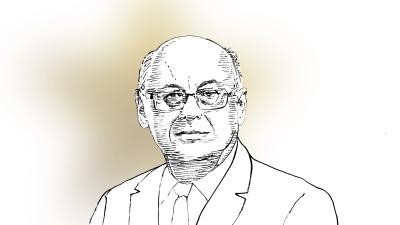

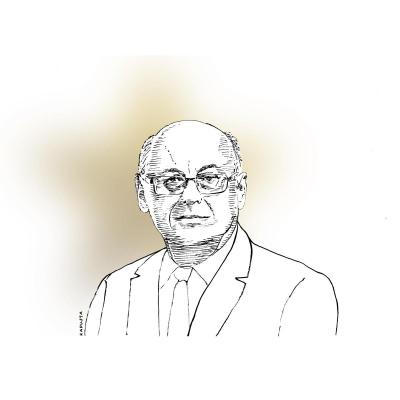
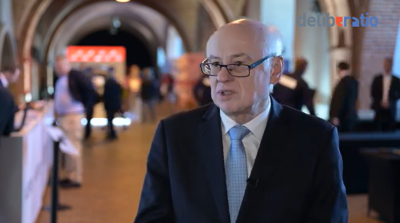

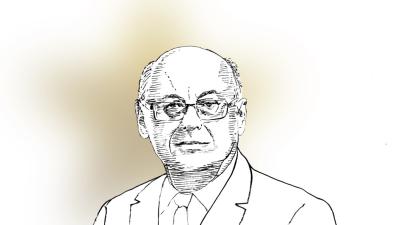

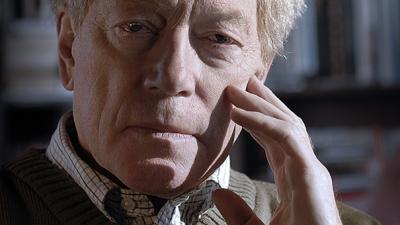

Comments (0)